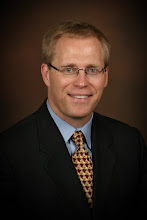A very unique piece of real estate is for sale -- a sovereign principality off the coast of the United Kingdom known as the "Principality of Sealand", www.sealandgov.org, which was established in 1967. Sealand was created when Paddy Roy Bates ("Prince Roy") purchased a World War II concrete platform built by the United Kingdom just 8 miles off its coastline.
Mr. Bates now lives in Spain so his son, Prince Michael, is now the head of state. The Bates family is offering to sell Sealand for $975 million which some real estate developers have expressed an interest in developing.
What interests me is the Bates' family statement that Sealand was created to escape "oppressive laws" but sadly I could not find an overview of the Laws of Sealand on their website. Perhaps they don't have any laws but I wanted some understanding of how the principality is governed given efforts such as the "Free State Project" which seeks to move enough liberty-loving citizens to the State of New Hampshire so that individual freedoms could be further extended and government even more limited.
Unfortunately Sealand is located in the North Sea not the Caribbean Sea so I don't plan to move the family there anytime soon but the "concept" of Sealand does inspire me.
Create your own island,
Todd
Wednesday, January 17, 2007
Subscribe to:
Post Comments (Atom)

4 comments:
Don't diss the Northsea, it is a great place. You chose to live in Minnesota after all, and I can assure you that the climate is milder in this part of the world.
But you do have a great point, this is an interesting precedent for the free state projects.
The main question is really how viable are those projects without the social and economical engines to drive them. Social engineering has so far had devastating consequences, even if it would be voluntary in this instance.
See here for an overview of the Sealand constitution:
http://en.wikipedia.org/wiki/Principality_of_Sealand#Sealand_operations
Unique cannot be modified.
Earth Muffin
Earth Muffin,
Are you a grammarian? You can modify words such as - "very happy" , "very good" -- but you can't go with "VERY unique" ?
Are there not varying degrees/levels of uniqueness? Andy Warhol was clearly more unique than Andy Griffith :)
Todd
Post a Comment